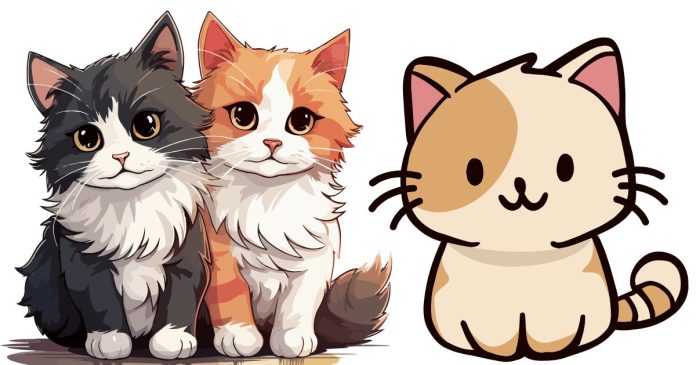What Do Cats Drink and Eat?
Cats are obligate carnivores, meaning their diet primarily consists of animal-based proteins. They require specific nutrients found in animal tissues, such as taurine and arachidonic acid, which are essential for their health. Here’s a breakdown of what cats typically eat and drink:
What Cats Drink
- Water
- Primary Drink: Water is the essential and most important drink for cats. They need fresh, clean water daily to stay hydrated, especially because their diet (in the wild and often in domestic settings) consists of low-moisture food.
- Hydration from Food: Cats who eat wet food (canned food) often drink less water because wet food has a higher moisture content, helping with hydration.
- Milk (in small quantities)
- While the popular image of a cat drinking a bowl of milk is widespread, most adult cats are lactose intolerant and cannot digest milk properly. It can lead to digestive issues such as diarrhea.
- However, some cats enjoy lactose-free milk or specially formulated cat milk.
- Other Beverages
- Cats should generally avoid drinking sugary drinks, caffeinated beverages, or alcohol, as these can be toxic to them. It’s always best to stick to water and occasional milk substitutes specifically designed for cats.
What Cats Eat
- Protein-Rich Foods
- Meat: Cats require animal-based proteins. The most common sources of protein are chicken, turkey, beef, fish, and other meats.
- Fish: Cats enjoy fish, but it should be fed in moderation due to high levels of mercury in some types of fish. Salmon and tuna are popular choices.
- Organ Meats: Cats benefit from the nutrients found in organs such as liver and heart, though these should be given in moderation.
- Wet Food (Canned Food)
- Wet food is often made from meat and can contain a significant amount of moisture, which is beneficial for hydration. Many commercial cat foods are formulated to meet all their nutritional needs.
- Wet food is also easier to digest and can be preferred by picky eaters.
- Dry Food (Kibble)
- Dry cat food is convenient and can help with dental health by reducing plaque buildup. However, it contains less moisture, so it is essential for cats eating dry food to drink plenty of water.
- High-quality dry food is typically high in protein, low in carbohydrates, and made with real meat as the main ingredient.
- Treats
- Cats enjoy treats like small pieces of cooked meat or special cat treats available in stores. These are usually used for training, bonding, or as an occasional snack.
- Avoid These Foods
- Onions, garlic, and chives: These can cause toxicity and lead to severe health issues in cats.
- Chocolate: It contains theobromine, which is toxic to cats.
- Dairy products (aside from specially formulated milk): Many cats are lactose intolerant and may experience digestive issues.
- Grapes and raisins: These can cause kidney failure in some cats.


